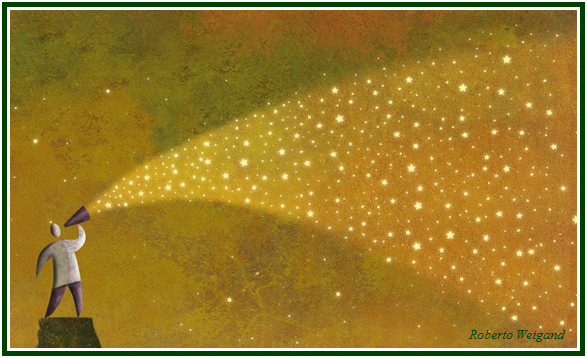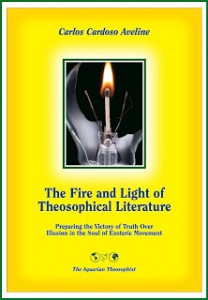
The Air Around Us is Itself One
Vast Library With Countless Pages
Sri Kshirod Sarma

000000000000000000000000000000000000000
The following text is reproduced
from the January 1885 edition of “The
Theosophist” magazine, Adyar, India, pp. 93-94.
0000000000000000000000000000000000000000000000
It is a maxim in Ethics that “conduct, which conduces to life in each and all, is good”. But we, the degenerate Aryans, have long lost sight of this maxim. We have long since forgotten the best practical means of conducing to the life of our practically extinct mighty Shastras. Science teaches us that sound is indestructible and we exult over our larger power of mathematical analysis, or, at least, of sound scientific analysis. The “Phonograph” testifies to the immutability of sound. Ages ago, our hoary Rishis taught the aphorism of Savda Bramh. The spirit fled, only the dead-letter interpretation remained. We scouted at is as the effusion of an abnormal imagination.
The “Phonograph” painfully led us to look back with a sigh. This invention of Prof. Edison’s is only the latest corroboration of the ancient theory: Sound is indestructible nothing is ever lost.
“Annihilation exists but in the fancy. It is an illusion of the imagination, dream of the poet, the wild and frigid fancy of the sceptic. Nothing, obvious to sense, admits of destruction. This is a well-stablished axiom in physics. It is not in the power of man to destroy the slightest particle of matter. What is termed destruction, as applied to material substances, is nothing but a decomposition and re-composition of their ulterior units.”
We may, by chemical or scientific means and processes, alter and re-arrange the existing combinations of matter, but, when so disintegrated, the dissipated and apparently destroyed particles enter into new and different compounds and assume other types and forms, but are never, in their original nature and elements, annihilated.
It may be here urged that decomposition and re-composition of ulterior units do not necessarily mean eternal progression. Here the doctrine of correspondence comes to our aid. From simplicity to complexity is the order of Evolution and hence a retrograde movement is the exception and not the rule.
That sound is indestructible – that Savda is nitya – finds its corroboration not only in the Phonograph, but I subjoin a beautiful extract from the pen of an acute philosopher, who contributed his essay in “The Ninth Bridgewater Treatise”, which will still better demonstrate the truth of the assertion. He says: –
The pulsations of the air, once set in motion by the human voice, cease not to exist with the sounds to which they gave rise. Strong and audible as they are, in the immediate neighbourhood of the speaker, and at the immediate moment of utterance, their quickly attenuated force soon becomes inaudible to human ears. The motions, they have impressed on the particles of one portion of our atmosphere, are communicated to constantly increasing numbers, but the total quantity of motion, measured in the same direction, receives no addition. Each atom loses as much as it gives and regains again from other atoms a portion of those motions which they in turn give up.
The waves of air, thus raised, perambulate the earth and ocean’s surface, and, in less than twenty hours, every atom of its atmosphere takes up the altered movement due to that infinitesimal portion of the primitive motion which has been conveyed to it through countless channels, and which must continue to influence its path throughout its future existence.
But these aerial pulses, unseen by the keenest eye, unheard by the acutest ear, unperceived by human senses, are yet demonstrated to exist by human reason; and, in some few and limited instances, by calling to our aid the most refined and comprehensive instrument of human thought, their courses are traced and their intensities are measured.
If man enjoyed a larger command over mathematical analysis, his knowledge of these motions would be more extensive; but a being, possessed of unbounded knowledge of that science, could trace every the minutest consequence of that primary impulse. Such a being however, far exalted above our race, would still be immeasurably below even our conception of infinite intelligence.
But, supposing the original conditions of each atom of the earth’s atmosphere, as well as all the extraneous causes acting on it, to be given, and supposing also the interference of no new causes, such a being would be able clearly to trace its future but inevitable path, and he would distinctly foresee and might absolutely predict for any, even the remotest period of time, the circumstances and future history of every particle of that atmosphere.
Let us imagine a being invested with such knowledge (though no longer an imaginary being), to examine at a distant epoch the coincidence of the facts with those which his profound analysis had enabled him to predict. If any the slightest deviation existed, he would immediately read in its existence the action of a new cause; and, through the aid of the same analysis, tracing this discordance back to its source, he would become aware of the time of its commencement, and the point of space at which it originated.
Thus considered, what a strange chaos is this wide atmosphere we breathe! Every atom, impressed with good and with ill, retains at once the motions which philosophers and sages have imparted to it, mixed and combined in ten thousand ways with all that is worthless and base. The air itself is one vast library on whose pages are for ever written all that man has ever said or woman whispered. There, in their mutable but unerring characters, mixed with the earliest as well as with the latest sighs of mortality, stand for ever recorded vows unredeemed, promises unfulfilled, perpetuating, in the united movements of each particle, the testimony of man’s changeful will.
But, if the air, we breathe, is the never-failing historian of the sentiments we have uttered, earth, air and ocean are the eternal witnesses of the acts we have done. The same principle of the equality of action and reaction applies to them: whatever movement is communicated to any of their particles is transmitted to all around it, the share of each being diminished by their number, and depending jointly on the number and position of those acted upon by the original source of disturbance. The waves of air, although in many instances perceptible to the organs of hearing, are only rendered visible to the eye by peculiar contrivances; but those of water offer, to the sense of sight, the most beautiful illustration of transmitted motion. Everyone, who has thrown a pebble to the still waters of a sheltered pool, has seen the circles it has raised, gradually expanding in size and as uniformly diminishing in distinctness. He may have observed the reflection of those waves from the edges of the pool. He may have noticed also the perfect distinctness with which two, three, or more waves, each pursues its own unimpeded course, when diverging from two, three, or more centres of disturbance. He may have seen that in such cases the particles of water, where the waves intersect each other, partake of the movements due to each series.
No motion, impressed by natural causes or by human agency, is ever obliterated. The ripple on the ocean’s surface, caused by a gentle breeze, or the still water which marks the more immediate track of a ponderous vessel gliding with scarcely expanded sails over its bosom, are equally indelible. The momentary waves, raised by the passing breeze, apparently born but to die on the spot which saw their birth, leave behind them an endless progeny which, reviving with diminished energy in other seas, visiting a thousand shores, reflected from each and perhaps again partially concentrated, will pursue their ceaseless course till ocean be itself annihilated.
The track of every canoe, of every vessel which has yet disturbed the surface of the ocean, whether impelled by manual force or elemental power, remains for ever registered in the future movement of all succeeding particles which may occupy its place. The furrow, it left, is indeed instantly filled up by the closing waters, but they draw after them other and larger portions of the surrounding element, and these again, once moved, communicate motion to others in endless succession.
The solid substance of the globe itself, whether we regard the minutest movement of the soft clay which receives its impression from the foot of animals, on the concussion arising from the fall of mountains rent by earthquakes, equally communicates and retains, through all its countless atoms, their apportioned shares of the motions so impressed.
Whilst the atmosphere, we breathe, is the ever living witness of the sentiments we have uttered, the waters and the more solid materials of the globe bear equally enduring testimony to the acts we have committed.
In conclusion, I ask your readers if these sentiments of C. Babbage are not corroborative of our ancient doctrines of the permanency of Sound and the Law of Karma.
Darjeeling,
18th October, 1884.
Sri Kshirod Sarma
000
Also by Sri Kshirod Sarma, see in our associated websites the article “The Process of Concentration”.
000
On the role of the esoteric movement in the ethical awakening of mankind during the 21st century, see the book “The Fire and Light of Theosophical Literature”, by Carlos Cardoso Aveline.

Published in 2013 by The Aquarian Theosophist, the volume has 255 pages and can be obtained through Amazon Books.
000